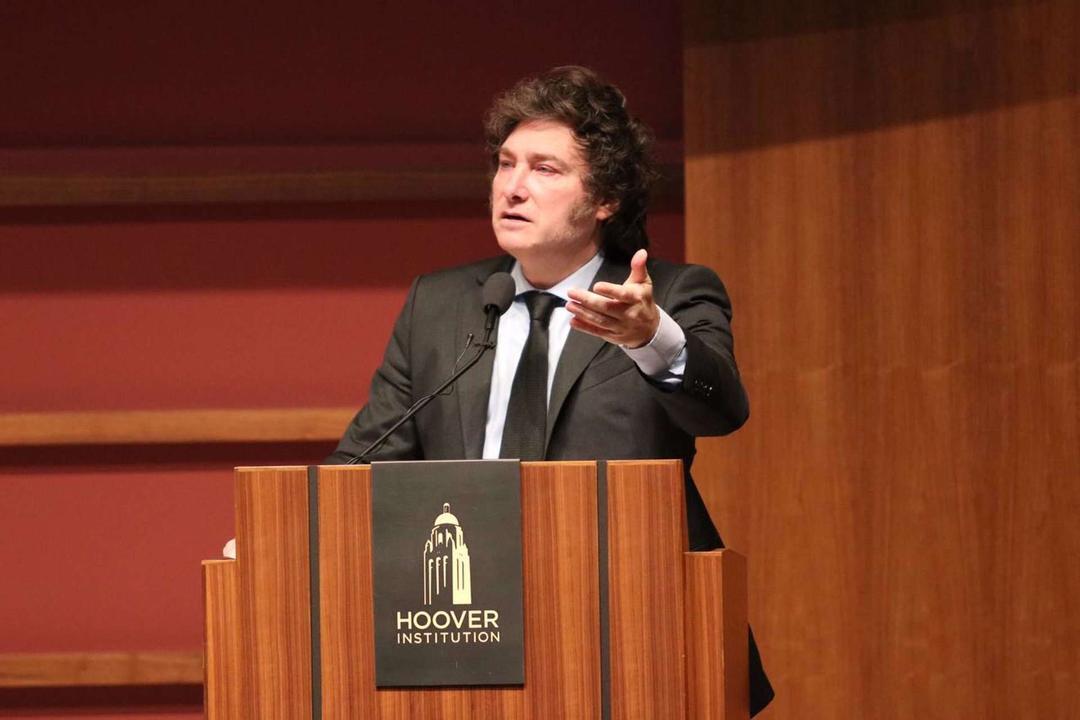"Milei y otras diplomacias" por Carlos Rodríguez Braun

La visita a España del presidente argentino, Javier Milei, profundizó los vaivenes de la política exterior de Pedro Sánchez, que consiguió enemistarse con Argentina e Israel.
El mandatario del país austral no venía en visita oficial sino a presentar un libro en el diario La Razón, a verse con empresas españolas, y a participar en un mitin de Vox. En ese mitin, al que acudió por su amistad con Santiago Abascal, acusó de corrupta a Begoña Gómez, la mujer de Sánchez, y se burló del presidente español y de su retiro espiritual para reflexionar sobre su permanencia en el Palacio de la Moncloa. Sabemos ahora que él conocía entonces la situación procesal de su mujer, aunque no lo dijo.

Fue todo un despropósito, incluido el insulto de Milei, pero nuestro Gobierno no estuvo delicado. Empezó el ministro Oscar Puente calificando al líder argentino de drogadicto, y sobreactuó después la cancillería, llegando a retirar a nuestra embajadora en Buenos Aires, una medida diplomática hostil e insólita cuando se trata de uno de los países del mundo con más lazos de unión con España.
A continuación, Sánchez procedió a reconocer el Estado de Palestina, algo que no solo provocó una crisis diplomática con Israel, y satisfizo a los terroristas de Hamás, sino que dividió al mundo político en España, que coincidía en ese objetivo, porque el Partido Popular apoya la iniciativa de la creación de dos Estados. Pero, como aclaró Alberto Núñez Feijóo en Onda Cero, no tenía sentido hacerlo justo hoy, con los crímenes de Hamás tan cercanos en el tiempo, y con tantos rehenes israelíes aún en su poder. Afirmó Feijóo: “Que España reconozca ahora el Estado Palestino hace más daño a los palestinos que beneficio”.
Se dirá que la diplomacia sirve para tapar problemas internos, y desde luego Pedro Sánchez los tiene. Pero también se sabe que en la política exterior deben primar los intereses del país y no los de un partido, y por eso suele ser ámbito propio para los consensos entre las fuerzas políticas. Pero tampoco la diplomacia con los adversarios conservadores es un punto fuerte de nuestro Gobierno.
Milei and other diplomacies
The visit to Spain of the Argentine president, Javier Milei, deepened the ups and downs of the foreign policy of Pedro Sánchez, who managed to become an enemy of Argentina and Israel.
The leader of the southern hemisphere country did not come on an official visit, but rather to present a book at the newspaper La Razón, to meet with Spanish companies, and to participate in a rally with Vox. At that rally, which he attended due to his friendship with Santiago Abascal, he accused the wife of Sánchez, Begoña Gómez, of being corrupt, and mocked the Spanish president and his spiritual retreat to reflect on whether he would remain in the Palace of Moncloa. We now know that he was then aware of the procedural situation investigating his wife, although he didn’t say so.
It was all nonsense, including Milei’s insult, however our Government was not sensitive. The minister Oscar Puente began by describing the Argentine leader as a drug addict and then the foreign ministry overreacted, removing our ambassador in Buenos Aires, a hostile and unprecedented diplomatic act when it is one of the countries in the world with the most ties to Spain.
Then, Sánchez recognised the State of Palestine, something that not only provoked a diplomatic crisis with Israel, and satisfied the Hamas terrorists, but which divided the political world in Spain, which agreed on that objective, because the Partido Popular supports the initiative to create two States. However, as Alberto Núñez Feijóo clarified on the radio station Onda Cero, it made no sense to do so today, so soon after the crimes of Hamas, and with so many Israeli hostages still being held by them. Feijóo stated: “Spain recognising the State of Palestine now does more harm to the Palestinian people than good.”
It will be said that diplomacy is used to cover up internal problems, and Pedro Sánchez certainly has them. However, it is also known that foreign policy must prioritise the interests of the country and not those of a party, and therefore it is normally a sphere for agreements between political forces. However, diplomacy with conservative adversaries is not a strength of our Government either.
